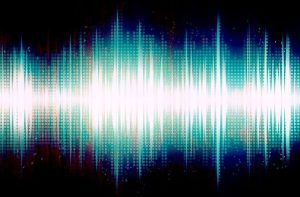Learning How to Record a Podcast
The art of creating captivating content has moved from written articles to the world of audio and video recordings, including podcasts. Through podcasts, individuals and businesses can share their views, tips, experiences, and stories with a broader audience.
As an audio-only medium, the sound quality of podcasts is paramount. We’ll take you through various facets of recording podcasts, including how to record for a podcast and how to get the best results when recording podcast audio. We’ll also explore podcast hosting services and dig into some of the intricacies of audio podcasting.
 Before hitting record, one must also consider the goal of the content; this is often lost on creators, considering the show’s goal is essential. Are you building credibility, a brand, looking at monetization, or just having fun? Before you hit record, consider the goal of the show, and you will find yourself being able to focus.
Before hitting record, one must also consider the goal of the content; this is often lost on creators, considering the show’s goal is essential. Are you building credibility, a brand, looking at monetization, or just having fun? Before you hit record, consider the goal of the show, and you will find yourself being able to focus.
To begin with, let us delve into the essentials of how to record for a podcast.
Firstly, investing in good-quality equipment is crucial for producing high-caliber sound. A professional microphone, headphones, pop filters, or windscreen shields are key tools to enhance your audio quality.
Secondly, selecting an appropriate recording space with minimal background noise and optimal acoustics is essential. Additionally, it’s important to have reliable audio editing software to refine your raw recordings seamlessly.
Thirdly, planning out your content meticulously is key – outlining scripts or talking points beforehand eases the recording process and guarantees a well-structured final product.
Fourthly, it’s important to develop strategies to capture listeners’ interest through auditory storytelling, necessitating skillful narration techniques coupled with creative sound design elements like background music or ambient sounds that add depth to your content.
Finally, it’s crucial to engage with your audience by encouraging feedback, responding to comments, and building a community around your content. This helps to create a loyal following and improve the overall quality of your content.
Later on in this guide, we’ll explore the best practices for recording stellar podcast audio in more detail.
In podcasting, selecting the right podcast hosting services also plays a pivotal role in building your brand to ensure smooth content distribution and management. A good hosting service allows efficient storage and easy upload of episodes, simplifies the RSS feed generation process, and provides detailed analytics on listener demographics and engagement. It also enables seamless integration with multiple directories and streaming platforms such as Apple Podcasts, Spotify, and hundreds of additional listening apps.
When it comes to choosing a hosting option for your website or application, it is imperative to conduct a thorough evaluation of the available options. This evaluation should consider your specific needs and budget, as well as the reliability and quality of the support provided by the hosting provider. A well-chosen hosting option can ensure that your podcast website or podcast application is easily accessible to your users. At the same time, a poor choice can lead to frequent downtime, slow loading speeds, and lost revenue. Therefore, taking the time to evaluate and select the right hosting option is a critical step in ensuring the success of your online presence.
Video podcasts have also emerged as an alternative to conventional audio-only podcasts. Incorporating visual elements into discussions or interviews simultaneously streamed online platforms like YouTube or TikTok adds another dimension to storytelling and keeps viewers hooked.
Video podcasts enable creators to explore diverse possibilities — be it showcasing product demonstrations, conducting live Q&A sessions, or simply having a face-to-face conversation with your audience. This format has immense potential to cultivate personal connections with followers and foster brand loyalty. But, of course, the same high audio and production quality expectations also apply to video podcasts.
How To Record A Podcast
If you’re looking to join the thriving community or increase the reach of your existing podcast, it’s essential to know how to record a podcast effectively.
It all starts with understanding the process and gathering the right tools to create high-quality audio content that captivates your audience.
One of the best ways to record a podcast is by using online platforms specifically designed for this purpose. With numerous options, such as Zencastr and SquadCast, users can easily record podcasts online without extensive technical knowledge or equipment.
Squadcast, a popular choice, is integrated with Descript. This fantastic audio editing tool is integrated with Blubry Podcasting, allowing a seamless publishing channel allowing you to record, edit, and then publish your show for distribution. Learn more about Blubrry and Descript here.
These web-based applications often provide built-in audio editing features, allowing you to fine-tune your recordings before publishing them on popular hosting platforms.
Recording remotely has become increasingly important and relevant in today’s digital age. Many podcasters collaborate with guests and co-hosts from different locations across the globe, so learning how to record a podcast remotely is crucial for maintaining a seamless workflow while ensuring top-notch audio quality.
The great news is that some of the platforms mentioned above offer solutions for remote recording and enable you to simply invite your guest or co-host via email or a shareable link, and they can join the recording session from their own device.
While audio quality is paramount when creating podcasts, incorporating video elements can take your content to new heights and help you reach new audiences.
If you’re wondering how to do a video podcast effectively, it’s essential first to choose an appropriate platform that supports both audio and video recording capabilities. Zoom, Skype, and Ecamm Live are popular among creators who want an easy-to-use interface that offers both functionalities. Once recorded, these sessions can be edited accordingly and shared on social media platforms or websites for increased visibility.
A crucial aspect of achieving professional-sounding podcasts lies in choosing the right microphone for recording purposes. The best microphone to record podcasts should offer clear sound quality without picking up excessive background noise or causing distortion at higher volume levels. Some popular microphone options include:
Investing in a good-quality microphone not only enhances your podcast’s production value but also ensures that your voice is captured and delivered effectively.
Learning how to record a podcast involves understanding various techniques and tools available. You can create engaging content that resonates with your target audience by exploring different online platforms, mastering remote recording sessions, incorporating video elements when needed, and investing in high-quality microphones. As the world of podcasting continues to grow and evolve, staying informed about new developments in technology and best practices will help keep you ahead of the curve and ensure that your podcasts reach their full potential.
Podcast Recording Software
With the rising demand for podcasts, finding the best podcast record software is crucial for creators to deliver top-quality content to their audience. So, let’s dive into the best app for recording a podcast, along with other podcast recording programs and tools that can contribute to producing excellent audio pieces.
The search for the best app for recording a podcast often depends on factors such as ease of use, features offered, and compatibility with various devices. Finding the right podcast recording software is essential to achieving optimal sound quality that resonates with listeners.
One standout option when it comes to podcast recording programs is Audacity. A free, open-source tool suitable for both beginners and experienced creators, Audacity provides extensive editing capabilities that enable users to polish their audio recordings effectively. Moreover, this software supports various file formats and works well across different operating systems – Windows, macOS, and Linux.
Podcasters seeking an all-in-one solution should consider investing in Hindenburg Journalist Pro – a comprehensive software designed specifically for radio journalists and podcasters. This software not only facilitates smooth recording but also aids in organizing interview clips or sound bites efficiently while offering a vast library of royalty-free music tracks.
For those heavily invested in Apple products or prefer working within the Apple ecosystem, GarageBand is an ideal choice. This versatile app caters not just to musicians but also serves as an excellent podcast recording app with its abundant selection of loops and sound effects.
Another noteworthy tool among the many available options is Zencastr – which is particularly popular among remote podcast producers (including the Blubrry team members). This web-based software allows podcasters to record high-quality audio tracks separately for each guest, ensuring excellent sound quality even without being in the exact physical location. Additionally, Zencastr offers handy post-production tools that can significantly enhance the final output.
Alitu The Podcast Maker is another convenient solution specifically catering to podcast creators. With its user-friendly interface and easy-to-navigate features, this software effortlessly handles all podcasting aspects – from recording to editing and publishing. It is an ideal choice for podcasters looking for an all-inclusive tool that simplifies their workflow.

Selecting the best podcast recording app or program depends on a creator’s specific needs and preferences. Budget, operating system compatibility, and feature requirements are crucial in determining the most suitable tool. Options like Audacity, Hindenburg Journalist Pro, GarageBand, Zencastr, and Alitu provide various functionalities that cater to different production styles – ultimately enabling creators to produce engaging content that keeps their listeners coming back for more.




